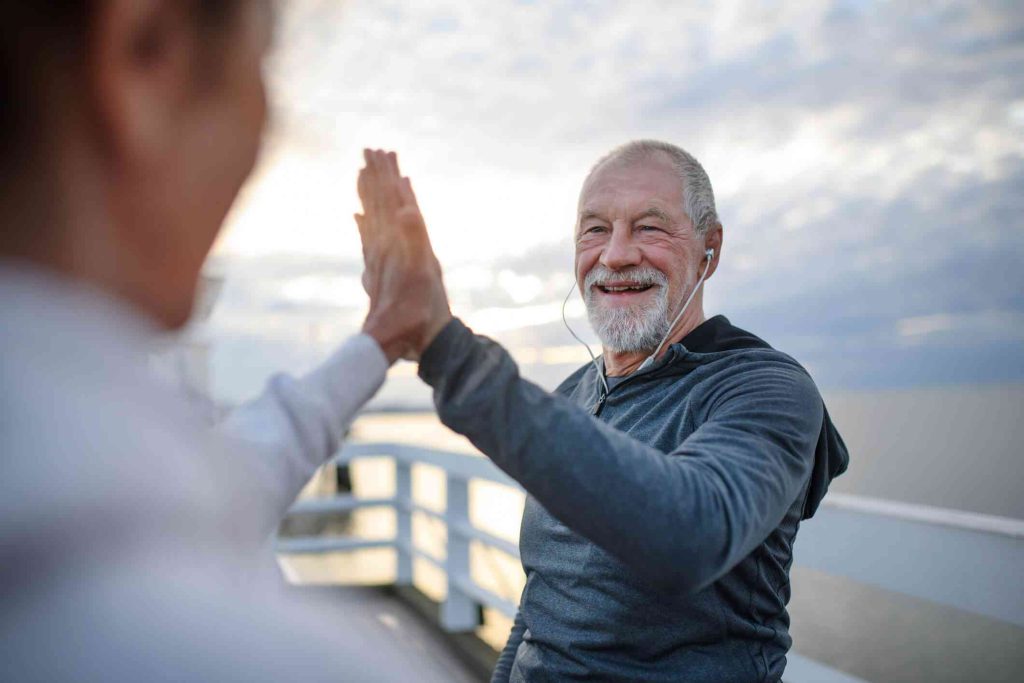
Strategies for Boosting Joy and Connection in Advanced Age

Aging is something that many people dread, yet life doesn’t conclude at retirement. Growing older is a privilege, and it’s entirely possible to find joy in your later years, particularly when you begin to shift your mindset and develop healthy habits today.
Nutrition and physical activity significantly contribute to promoting longevity, but emotional health is equally important. Tackling feelings of loneliness and maintaining social connections are essential not only for extending life but also for genuinely enjoying those additional years.
Dr. Kerry Burnight, a gerontologist based in California, examines aging from various perspectives—biological, social, and psychological—and asserts that four vital components contribute to a happier and healthier older age: growing, connecting, adapting, and giving. Her mother, 96-year-old Betty Parker, serves as a fantastic role model. She continues to find happiness in small pleasures, such as baking pies, picking roses from her garden, and playing cards with friends.
John Batsis, a geriatrician and associate professor at UNC’s School of Medicine and Gillings School of Global Public Health in Chapel Hill, North Carolina, collaborates with Burnight to provide four essential strategies to enhance your later years. You can begin implementing these today to cultivate a healthier, more connected, and fulfilling future.
## Initiate these 4 simple practices now to pave the way for a happier future.
### Discover a hobby beyond work
How do you envision filling your days once you retire? Batsis notes, “The retirement cliff, if you will, can be quite challenging for those who have dedicated a lifetime to their careers.” He suggests starting to explore hobbies and activities you could enjoy during retirement while you’re still employed. This approach makes the transition smoother.
Whether you wish to write a book, take up gardening, or try pottery, it’s never too late to embark on a new venture.
### Stimulate your mind
While crossword puzzles and sudoku are excellent for keeping your mind engaged, to truly maintain mental acuity and maximize your later years, it’s vital to challenge yourself with activities that stretch your limits. “New experiences stimulate neuroplasticity… our brain’s capacity for continual growth,” Burnight clarifies. “If you stick to the same routines, you’re not setting yourself up for ongoing advancement.”
Batsis suggests remaining active and discovering a hobby that encourages physical movement. One of his patients began playing golf post-retirement and even took up the guitar. Batsis emphasizes, “Individuals should find something that sparks their interest, because the more intriguing it is to them, the more they’ll engage in that activity.”
### Maintain social connections
Isolation can adversely affect both physical and mental health, prompting both Batsis and Burnight to encourage social engagement. Even brief exchanges, like chatting with a neighbor or your local barista, can enhance your sense of community.
Parker meets every month with a group she refers to as “the youngs” to play canasta—a game she taught them. These women in their 60s were introduced to her through her daughter-in-law, and despite the age difference, Parker values friendships across generations, especially after outliving her husband and many close friends.
“Just as we diversify our financial investments, we should seek friendships of varying ages, neighbors, as well as friends from our past,” Burnight emphasizes. “You have to take the initiative to plan get-togethers or remember significant dates, or even be there during tough times.”
### Modify your perspective
Research indicates that your attitude toward aging can profoundly impact how you age. “Individuals who view aging as a period of ongoing growth tend to live 7.5 years longer than those who think, ‘Oh, I’m old. I’ll retire and just knit with the ladies,’” Burnight states. “Your ability to adapt is largely about accepting that challenges will arise. What matters is your response to those challenges.”
Experiencing physical decline with age doesn’t mean you should withdraw from life. Burnight advocates refocusing your attention on aiding others. Studies reveal that volunteering can enhance your sense of joy, purpose, and may even extend your lifespan. “Purpose is something small and daily and involves a choice,” Burnight explains. “It’s about deciding, ‘How will I utilize my life and the skills I have today?’”
*Source: [96-year-old shares what she does to keep life vibrant. You can start doing it now](https://www.ctvnews.ca/health/article/96-year-old-shares-what-she-does-to)